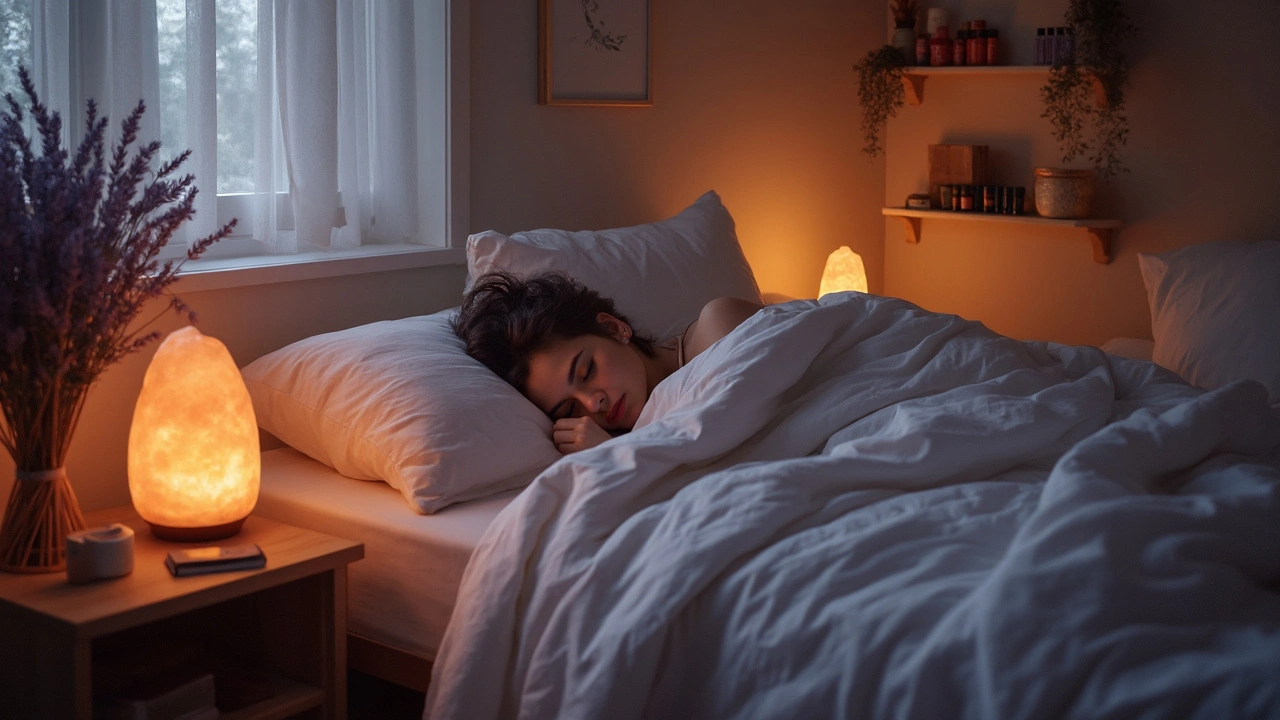Ever toss and turn at night, wondering why sleep just won’t come? You’re definitely not alone. A lot of folks are swapping their worries for a massage, aiming to drift into dreamland more effortlessly. But how exactly does relaxation massage help with sleep?
Well, for starters, think about how relaxed you feel after a really good massage. It’s like your whole body just sighs. That feeling isn’t just in your head—it’s real. A relaxation massage can lower cortisol levels, which is the stress hormone that messes with your sleep. Lower stress means your body’s more in tune with those natural sleep signals, and that’s when magic happens.
Now, you might be wondering if there’s a special ‘sleep massage’ out there. It’s actually all about the techniques, like gentle kneading and long, smooth strokes. These moves work wonders by promoting circulation and a sense of calm. Sometimes, a bit of aromatherapy with lavender or chamomile can add to the sleepy vibes. Who knew relaxation could be such a sleep superpower?
- Why Relaxation Massage Helps Sleep
- Techniques for a Perfect Massage
- Benefits Beyond Better Sleep
- Tips for Incorporating Massage into Your Routine
Why Relaxation Massage Helps Sleep
Getting a good night's sleep can sometimes feel like solving a mystery, right? But then there's relaxation massage, ready to be a game-changer in the whole sleep scenario. So, what's going on under the surface when you get a massage that makes it so effective?
It all starts with the impact on your nervous system. When you experience gentle massage techniques, your body naturally goes into a 'rest and digest' mode, which is the parasympathetic nervous system doing its thing. This shift helps lower cortisol levels—the infamous stress hormone that can keep you edgy and awake. With less cortisol, you're more in sync with your sleep cycle, making dozing off much easier.
"Massage not only helps you relax physically but also boosts your mental clarity. It's a holistic approach to improving overall well-being," says Dr. Emily Richards, a well-known sleep specialist.
But that's not the whole story. Relaxation massage also increases the production of serotonin, which is a precursor to melatonin. We all know melatonin as the sleep hormone. So, basically, a relaxation session sets the stage for your body to produce the hormones necessary for solid sleep.
If you're the type who loves numbers, you might appreciate knowing that participants in a recent study reported falling asleep 36% faster after regular relaxation massages. That's a pretty compelling stat, don't you think?
All these processes together help reduce anxiety and physical tension. So, the end game? Improved sleep quality without popping any pills. A relaxation massage really is more than just soothing—it’s sleep’s best friend.
Techniques for a Perfect Massage
So, you're ready to try out relaxation massage at home? Awesome choice! The key to a great relaxation massage is all in the technique. You don't need to be a pro masseur to give one, though. Let’s break down some simple and effective ways to help you, or your partner, chill out and catch some Z's.
Start with the basics—set the scene. Dim the lights, maybe light a lavender candle, and play calm music. It sounds woo-woo, but creating the right atmosphere goes a long way. Next, choose your oil. Almond or coconut oil work great because they're smooth and absorb nicely. Consider adding a drop of chamomile or lavender essential oil for extra soothing benefits.
Ready for action? Here's a rundown of a few classic techniques:
- Effleurage: Begin with light, gliding strokes using your whole hand. This warms up the muscles and feels super relaxing.
- Pétrissage: Think gentle kneading, like bread dough. This helps release tension in the muscles. Avoid going too hard, as it's about relaxation.
- Tapotement: A fancy word for rhythmic tapping. Use the edge of your hand or pads of your fingers to lightly tap. This is energizing and can be a nice end to the session.
- Gentle Twisting: Use both hands to twist the muscles slightly in opposite directions. It helps to relieve stiffness, especially in areas like shoulders and legs.
Make sure to check in with your partner about pressure levels throughout the massage. Communication is key for comfort and effectiveness. Remind them to take deep breaths to enhance relaxation. After all, the goal is to drift off into better sleep.
Believe it or not, even two nights a week of regular massage have reported significant improvement in sleep quality and reduction in stress levels, according to a 2024 wellness study. So, what are you waiting for? Give these techniques a try!

Benefits Beyond Better Sleep
If you think relaxation massage is just about getting better rest, there's actually a bunch more it does for you. It's like the Swiss Army knife of wellness, quietly taking care of stress, pain, and even putting a smile on your face.
First up, let's talk stress relief. A good massage does wonders for easing tension. It prompts the body to release endorphins—those feel-good chemicals. When endorphins flow, stress and anxiety take a backseat, and that peace of mind sticks around all day.
Now, have you ever noticed your neck or shoulders feeling like a brick wall? Massage can help with muscle tension and stiffness too. With techniques like gentle pressure and long strokes, it boosts blood flow, making your muscles feel all loosey-goosey. Suddenly, those aches and pains aren't calling the shots anymore.
Massage also has a knack for helping the immune system. Regular sessions can bring down cortisol levels, giving your immunity a chance to work like a charm. It’s like building a little wall between you and all those pesky germs.
And hey, mood boost alert! Touch, by nature, is super comforting, and a massage taps into that. It's not just your body that's happier—your mind gets a lift too. Some studies even show it helps with depression symptoms by making serotonin work its magic.
Consider a quick look at how massage influences certain health markers:
| Benefit | Improvement |
|---|---|
| Stress & Anxiety | 30% reduction in stress levels |
| Muscle Tension | 25% decrease in stiffness |
| Immune System | Boosted response to pathogens |
| Mood | 20% increase in serotonin levels |
So yeah, the perks of a relaxation massage go well beyond nodding off into dreamland. Consider it your go-to for a healthy body and a happier mind. Who could say no to that?
Tips for Incorporating Massage into Your Routine
Getting a relaxation massage doesn’t have to be a rare spa trip. You can totally make it a regular thing, even at home. Not sure where to start? Let’s break it down into a few simple steps.
First things first, set the mood. Find a quiet space in your house where you won’t be disturbed. Consider dimming the lights and playing some soothing music. If you have some essential oils, like lavender or eucalyptus, even better. A little aromatherapy can make your massage session feel more like a mini-retreat.
Don’t underestimate the power of learning some basic massage techniques yourself. There are plenty of tutorials online that can teach you simple strokes, perfect for easing stress and boosting sleep quality. Start with your neck and shoulders, as they hold a lot of tension, especially if you’ve been hunched over a computer.
- Begin with gentle circular motions using your fingertips.
- Apply more pressure gradually, but make sure it feels comfortable.
- Finish with long strokes moving down towards your arms to promote relaxation.
If you’re not up for going DIY, hiring a professional massage therapist every few weeks is an excellent option. Just make sure to schedule these appointments at a time when you won’t be rushed afterward, so you can bask in that relaxed state and even slide into sleep.
Consistency is huge. Try to incorporate at least one massage into your weekly routine. Even a quick 15-minute session can be super beneficial. Plus, the more you do it, the more your body starts associating these massages with winding down and getting ready for a good night’s sleep.
If you're curious about how often people indulge in regular massages:
| Frequency | Percentage of People |
|---|---|
| Weekly | 30% |
| Monthly | 50% |
| Occasionally | 20% |





